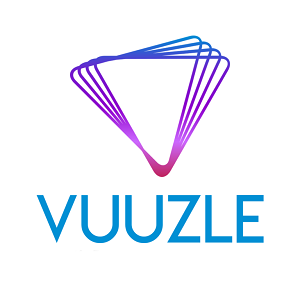
PRELIMINARY STATEMENT
The Securities and Exchange Commission (“SEC” or the “Commission”) bases its Complaint entirely on the faulty premise that Vuuzle (1) is not a viable company, but rather some illegitimate back-room Ponzi-like scam, operating as a boiler room out of the Philippines. All that one need does to learn quickly that the Commission mischaracterizes the business of Vuuzle to fit its desired narrative is to download the “Vuuzle TV” app to access Vuuzle’s free movies, television shows and live television, which confirms the legitimacy of the Vuuzle media enterprise. (2) Vuuzle is an industry disruptor by returning the notion of free television as existed for decades. One easily can conclude that the Commission’s ‘spin’ on the Vuuzle business is little more than an effort to delegitimize what has the potential to compete with media giants.
The repeated gratuitous references to “boiler room,” “Ponzi,” and “scheme” in the Complaint serve only to reinforce the Commission’s contention that Vuuzle is merely a shell company. In fact, Vuuzle is a viable company with an independent Board of Directors, an independent executive management team, brick and mortar buildings housing a state-of-the-art studio in the United Arab Emirates (“UAE”), and office space in Las Vegas. Vuuzle also employs staff, across its creative, marketing, and programming departments.
Further contradicting the Commission’s assertions and instead confirming the Company’s viability is Vuuzle’s development and implementation of a three-part media platform to livestream music, television, and social media. Vuuzle’s first media venture focused on live interactive social media, which was designed to generate revenue for Vuuzle through users purchasing virtual gifts from Vuuzle, such as emojis that were sent to other users. For example, a user could purchase a virtual heart emoji from Vuuzle and send the heart emoji virtually to another user to express appreciation for the performer’s singing or other social media talent. Vuuzle then turned its attention to developing and maintaining free livestream music and television on its own “over-the-top”
(“OTT”) platform. (3) Vuuzle TV delivered digital television and film content via the internet to internet-connected devices without requiring users to subscribe to a traditional cable or satellite provider. This enabled Vuuzle to generate data relating to users’ preferences, relationships, habits, and location, making possible for companies’ advertising through Vuuzle to utilize the data to hyper- target their marketing strategies and reach their target audiences. Vuuzle’s income from free Vuuzle TV derives principally from revenue generated through advertisers who are able to target specific audiences within a particular demographic. Vuuzle received a Verizon Media Brandblazers Award for its innovative business platform and products hosted on the Verizon Digital Media Services platform.
Vuuzle does not dispute that it raised capital pursuant to a Regulation D exempt offering. Vuuzle raised capital and used that capital consistent with legitimate uses in such a capital-intensive industry as media and entertainment. The Commission simply is incorrect in its characterization of Vuuzle’s capital raise. Regrettably, the Commission tends to conflate offshore-based capital raises by dynamic and disruptive startups with ‘scheme’ lexicon. That is not Vuuzle, and this Answer reinforces the bona fides of Vuuzle as a 21st Century cutting-edge media and entertainment company.
SUMMARY
Full filing of the Vuuzle Media Corp.’s response is available here.